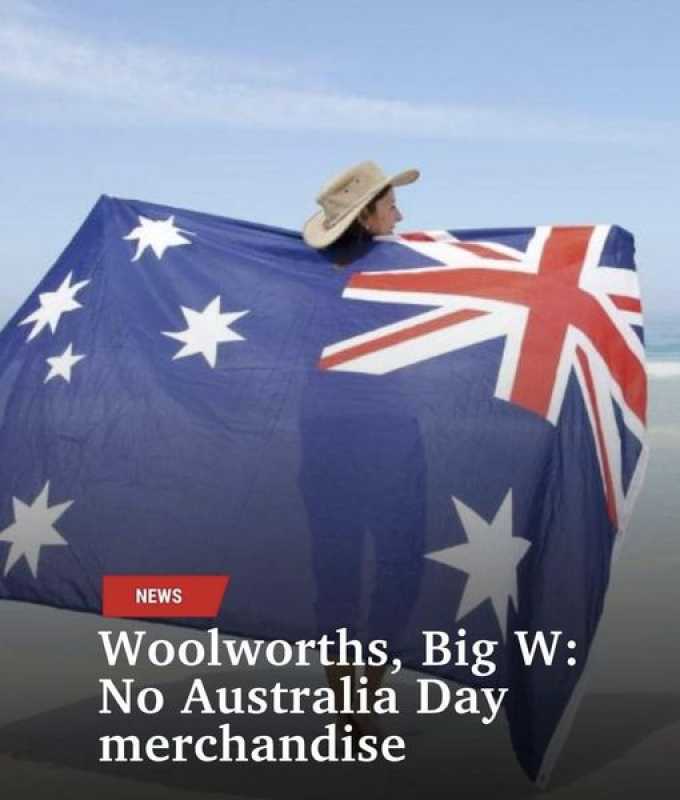News
Woolworths and Big W Australia Day Decision Prompts Calls for Boycott

Major Australian retailers Woolworths and Big W have chosen not to stock Australia Day merchandise this year, citing a decline in community demand. This decision has led Opposition Leader Peter Dutton to call for a boycott of Woolworths, while Reconciliation Australia has supported the move. Experts believe that Woolworths may only be the first of many retailers to make similar decisions.
According to Woolworths Group, there has been a gradual decline in demand for Australia Day merchandise from their stores in recent years. Additionally, there has been growing discussion around the significance of January 26 to different parts of the community. However, Peter Dutton has expressed his disagreement with the decision and urged Australians to boycott Woolworths, criticizing it as an example of a company following a “woke agenda.”
Woolworths is not the only retailer moving away from selling Australia Day merchandise. Last year, Kmart also announced that it would not stock specific merchandise for January 26. While Aldi has not confirmed, it is rumored that they will not promote Australia Day through special promotions. Conversely, Coles confirmed that they would still offer a small range of Australian-themed items for summer entertaining throughout January. The stance of The Reject Shop, Target, and IGA on the matter is yet to be determined.
The federal government has criticized Peter Dutton’s call for a boycott, stating that it is a divisive move. Reconciliation Australia, on the other hand, has welcomed Woolworths’ decision, emphasizing the importance of reevaluating the meaning of Australia’s national day and creating a better country that all citizens can be proud of.
While some consumers may see Woolworths’ decision as sudden, it is part of a broader shift in perspective that has been ongoing for some time. As community standards and perceptions change, there is a growing concern around the appropriateness of celebrating Australia Day on January 26, a date viewed by many Aboriginal and Torres Strait Islander people as “Invasion Day.” Those who advocate for keeping the national day on January 26 argue that changing it would be divisive and overlook the issue of Indigenous disadvantage.
Richard Ralphsmith, a founder of Australian advertising company DPR&Co, suggests that Woolworths may have made the decision to avoid potential reputational risks. However, this decision could also lead to customer dissatisfaction, as many Australians have no objections to the supermarket stocking Australian-themed merchandise. Consumer behavior expert Gary Mortimer notes that Australians are increasingly conscious of the historical significance of certain dates, prompting businesses and organizations to reflect on their practices.
Andrew Laidlaw, Managing Director of research and campaigns at communications firm Morrow Sodali, suggests that in an environment filled with conflict, most consumers prefer to focus on celebrating what unites Australians. Companies that are perceived to fuel further conflict may face negative repercussions. The National Australia Day Council, while unavailable for comment, remains committed to fostering a day for all Australians to reflect, respect, and celebrate.












